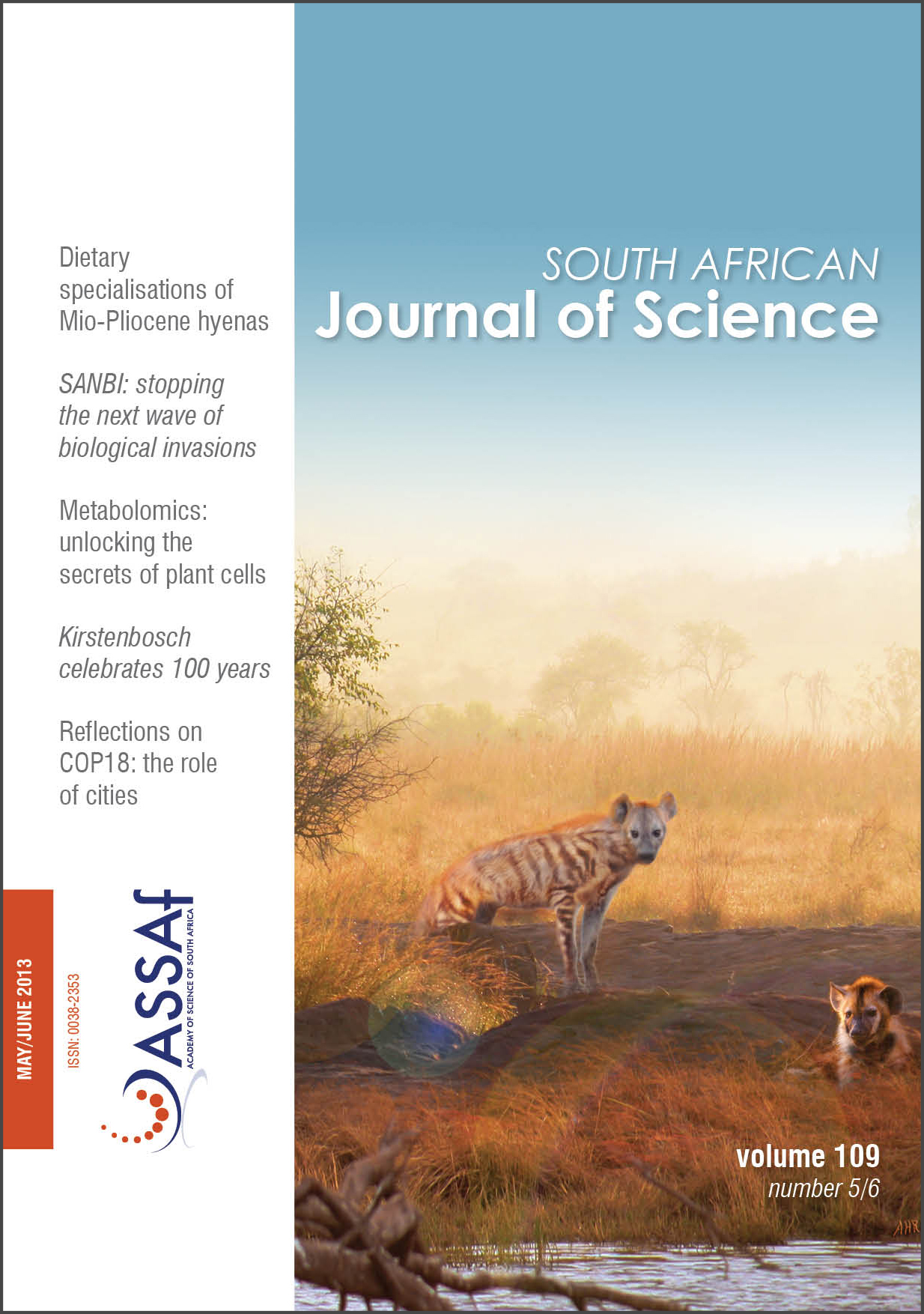Is the southern Benguela a significant regional sink of CO2?
DOI:
https://doi.org/10.1590/sajs.2013/20120094Keywords:
southern Benguela, eastern boundary, carbon dioxide, CO2, remineralisationAbstract
This study was undertaken to characterise the seasonal cycle of air–sea fluxes of carbon dioxide (CO2) in the southern Benguela upwelling system off the South African west coast. Samples were collected from six monthly cross-shelf cruises in the St. Helena Bay region during 2010. CO2 fluxes were calculated from pCO2 derived from total alkalinity and dissolved inorganic carbon and scatterometer-based winds. Notwithstanding that it is one of the most biologically productive eastern boundary upwelling systems in the global ocean, the southern Benguela was found to be a very small net annual CO2 sink of -1.4 ± 0.6 mol C/m2 per year (1.7 Mt C/year). Regional primary productivity was offset by nearly equal rates of sediment and sub-thermocline remineralisation flux of CO2, which is recirculated to surface waters by upwelling. The juxtaposition of the strong, narrow near-shore out-gassing region and the larger, weaker offshore sink resulted in the shelf area being a weak CO2 sink in all seasons but autumn (-5.8, 1.4 and -3.4 mmol C/m2 per day for summer, autumn and winter, respectively).
Published
Issue
Section
License

All articles are published under a Creative Commons Attribution 4.0 International Licence
Copyright is retained by the authors. Readers are welcome to reproduce, share and adapt the content without permission provided the source is attributed.
Disclaimer: The publisher and editors accept no responsibility for statements made by the authors
How to Cite
- Abstract 1029
- PDF 510
- EPUB 221
- XML 221













.png)